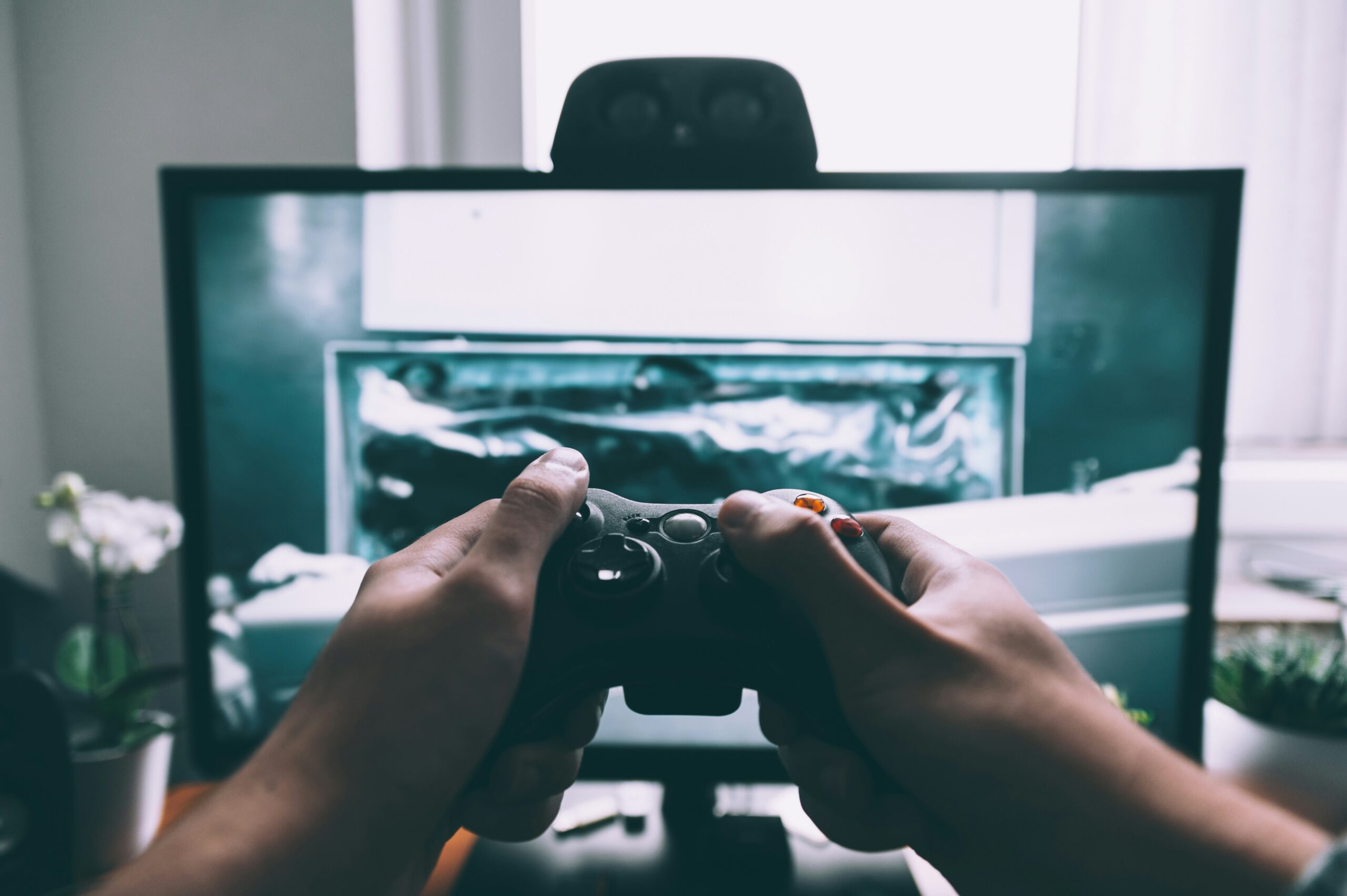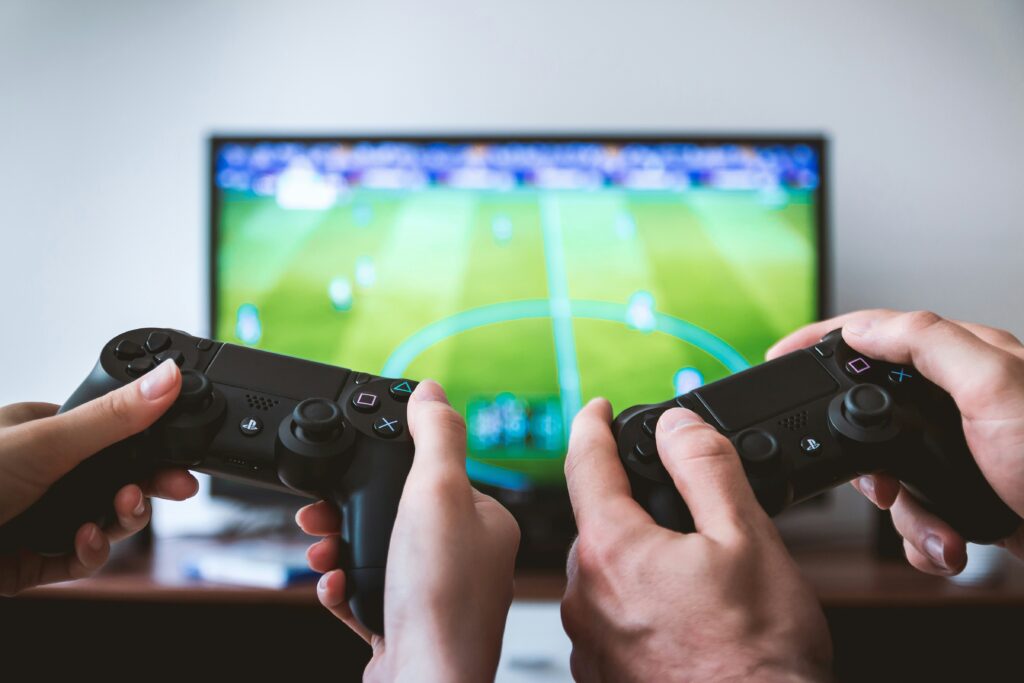Gaming Addiction Symptoms: Recognizing the Warning Signs and Finding Help
Gaming addiction, also known as internet gaming disorder, has become an increasing concern as video games continue to gain popularity worldwide. While playing video games can be an enjoyable and even social activity, excessive video game use can lead to a serious behavioral addiction with consequences on both physical and mental health. In this article, we’ll explore common gaming addiction symptoms, factors that contribute to video game addiction, and approaches to treatment.

What is Gaming Addiction?
Gaming addiction, classified by the World Health Organization as a gaming disorder, involves persistent and recurring gaming behaviors that disrupt a person’s daily life. The American Psychiatric Association defines gaming addiction through its “Diagnostic and Statistical Manual of Mental Disorders,” highlighting it as a potential behavioral addiction with parallels to gambling disorder. People with gaming addiction often play games excessively, to the point where it impacts their work, relationships, and physical health. The time spent gaming can become all-consuming, making it hard for individuals to quit gaming even when they recognize its negative effects.
Symptoms of Gaming Addiction
Preoccupation with Gaming
Those experiencing gaming addiction symptoms might think about video games constantly, even when they’re not playing. This preoccupation can disrupt focus on other tasks.Inability to Reduce Gaming Time
Many with video gaming addiction try to cut down on gaming time but struggle to maintain control over the time spent gaming.Loss of Interest in Other Activities
Excessive video game usage can make other activities seem less interesting or enjoyable. Social gatherings, hobbies, and even work may lose appeal.Withdrawal Symptoms
Withdrawal symptoms from gaming are similar to those in other behavioral addictions, like irritability, depression, or anxiety when not playing games.Deceptive Behaviors
Gaming addicts may hide or lie about their gaming habits, especially when confronted by family members or friends. This “gaming lying” is a classic symptom of internet gaming disorder.Interference with Daily Life
Daily responsibilities like school, work, or household chores may suffer as gaming addicts prioritize their time playing video games over other duties.

Impact of Gaming Addiction on Mental Health
Video game addiction affects mental health significantly. Those addicted may face mental health conditions like depression, anxiety, and even low self-esteem. Mental health professionals have noted that gaming addicts often struggle with poor academic performance, reduced cognitive skills, and lack of focus. Over time, these individuals may develop mental health problems, including behavioral addiction that affects their emotional stability.

Physical Health Effects of Excessive Gaming
Gaming addiction can impact physical health as well. Sedentary behavior while playing video games for prolonged periods can lead to physical health issues, including poor posture, back pain, eye strain, and even carpal tunnel syndrome. Individuals addicted to gaming may also neglect nutrition and sleep, contributing to further physical and mental health problems.
Who is at Risk for Gaming Addiction?
Younger Demographics
Young adults and teenagers are at higher risk of developing video game addiction due to the amount of time they spend gaming and the appeal of online multiplayer games.Mental Health Conditions
Those with underlying mental health issues such as depression, anxiety, or ADHD may be more prone to becoming gaming addicts as they turn to games for an escape from reality.Family Dynamics
Family members may unknowingly contribute to the issue if they fail to establish limits on gaming time or encourage outdoor activities to balance screen time.
Behavioral Signs of Video Game Addiction
Some warning signs of gaming addiction to watch for include mood swings, excessive irritability, and lying about time spent gaming. This behavior can often lead to behavioral addiction, where the individual feels compelled to play games at the cost of their own well-being.
Gaming Addiction vs. Gambling Addiction
Like gambling addiction, gaming addiction is a behavioral addiction that triggers the brain’s reward system. The repetitive dopamine releases from achieving goals in video games make them highly addictive. Both disorders are now recognized as serious issues by the American Psychiatric Association.
Seeking Treatment for Video Game Addiction
1. Group Therapy
Group therapy offers a supportive environment where gaming addicts can share their struggles and receive feedback from others facing similar issues. Group therapy can be effective in addressing both mental and behavioral addiction.
2. Individual Counseling
One-on-one counseling with a mental health professional can provide insights into the causes behind gaming habits and help develop healthier coping mechanisms.
3. Family Therapy
Involving family members in therapy sessions can help rebuild trust and set boundaries around gaming.
4. Cognitive Behavioral Therapy (CBT)
CBT is commonly used in the treatment of video game addiction to help individuals understand the thoughts and behaviors that fuel their gaming habits.
Practical Tips to Reduce Gaming Addiction Symptoms
Set Time Limits
Establishing clear boundaries on the time spent gaming each day can help manage gaming habits.Engage in Physical Activities
Engaging in outdoor activities or exercise can provide alternative ways to relieve stress and offer physical health benefits.Seek New Hobbies
Finding interests outside of video gaming, such as music, sports, or art, can help reduce the urge to play games excessively.Keep a Log of Gaming Time
Tracking the time spent gaming can raise awareness and highlight the impact of excessive gaming on daily life.
Frequently Asked Questions
1. What are the early signs of gaming addiction?
Early signs include spending more time playing video games than intended, feeling restless or irritable when unable to play, and neglecting other responsibilities in favor of gaming.
2. How does gaming addiction affect mental health?
Gaming addiction affects mental health by increasing the risk of depression, anxiety, and low self-esteem. It can also lead to behavioral issues like irritability and social withdrawal.
3. Can gaming addiction lead to physical health issues?
Yes, gaming addiction can lead to physical health issues such as poor posture, eye strain, and sleep disturbances due to prolonged screen time and lack of physical activity.
4. Is there a treatment specifically for video game addiction?
Yes, treatments include cognitive behavioral therapy (CBT), group therapy, and family counseling. In severe cases, a mental health professional may also suggest medication to address coexisting mental health issues.
5. How can I support someone struggling with gaming addiction?
Supporting someone with gaming addiction includes setting healthy boundaries, encouraging non-gaming activities, and seeking professional help if needed.
Recognizing the symptoms of gaming addiction early on can help prevent negative consequences on both mental and physical health. For those affected, understanding that treatment options like counseling, group therapy, and behavioral therapy exist can be the first step toward recovery.
Visit SAMHSA for more information or contact us today!





